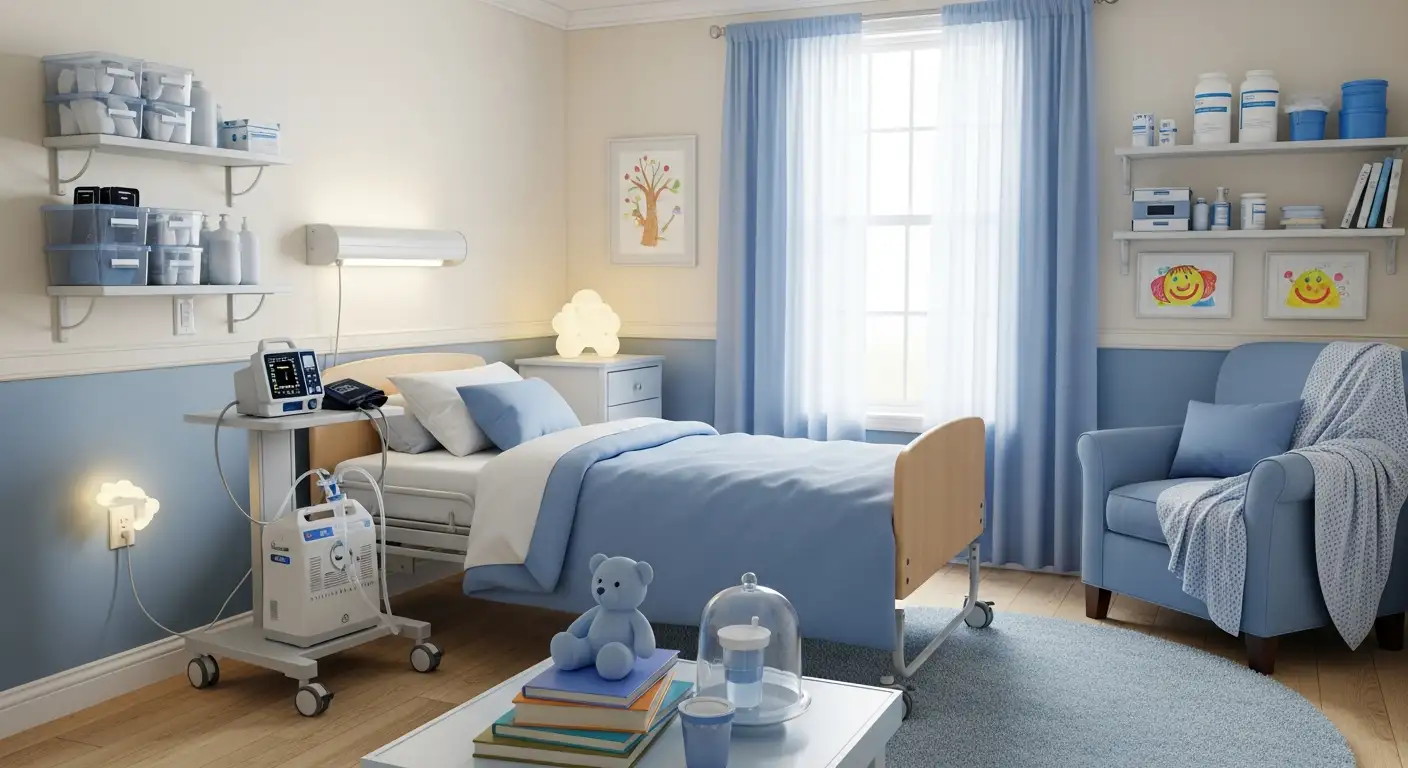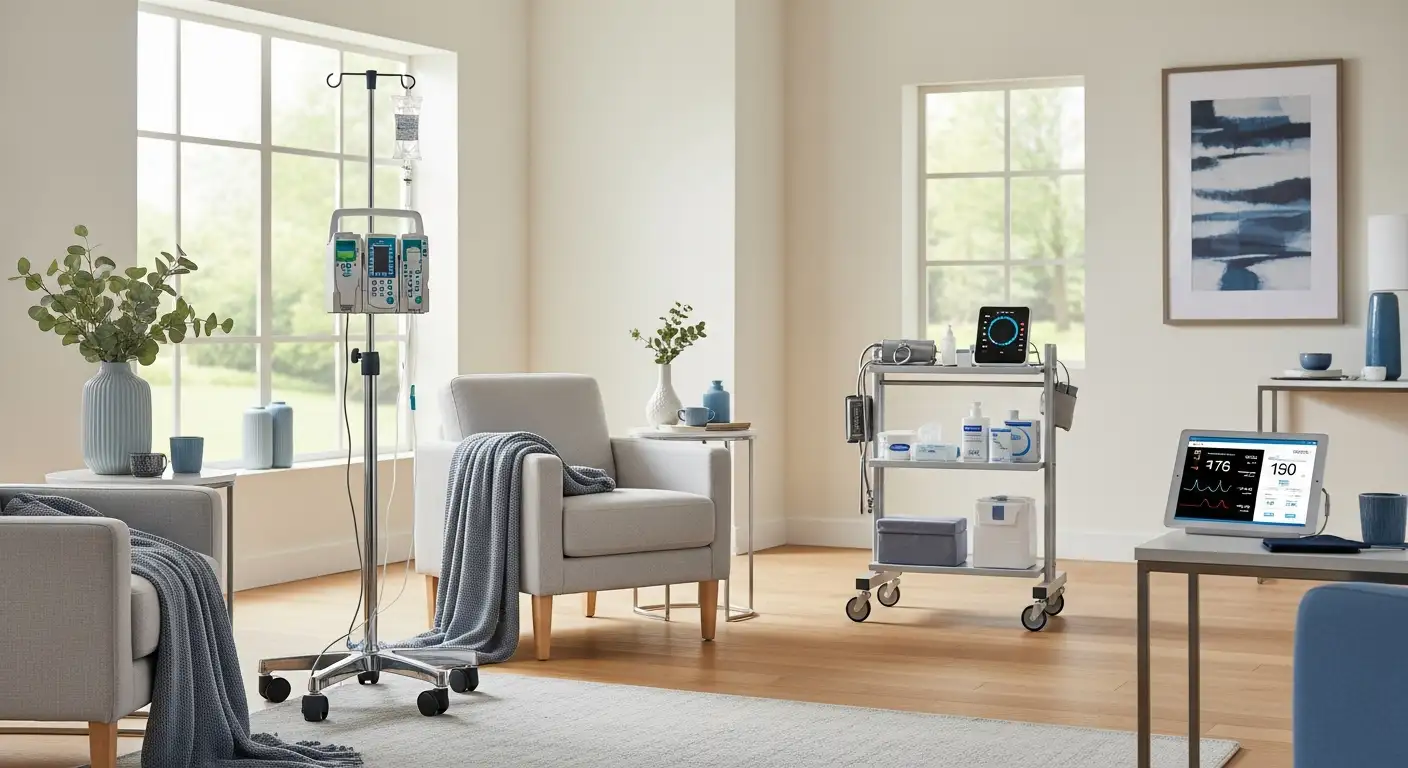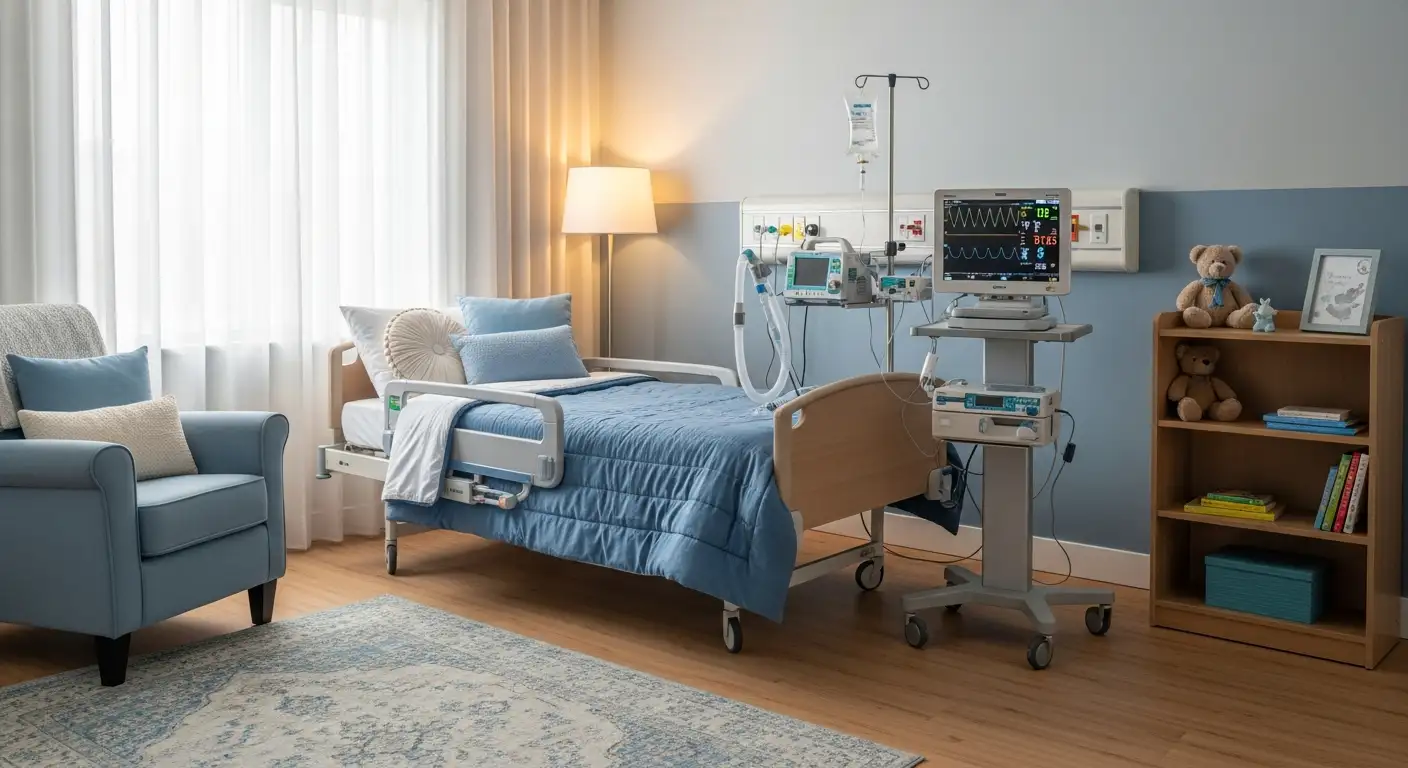Understanding the Power of Companion Care in Managing Anxiety
As the aging population grows, addressing mental health issues such as anxiety among seniors becomes increasingly vital. Companion care has emerged as an effective approach to support elderly individuals facing anxiety disorders. Through consistent social interaction, emotional reassurance, and engaging activities, companion caregivers help mitigate feelings of loneliness, reduce anxiety symptoms, and promote overall well-being. This article explores how companionship supports mental health, examines strategies used by caregivers, and highlights the measurable benefits of integrating companion care into elderly mental health management.
The Role of Social Interaction in Elderly Mental Health

What role does social interaction through companion care play in supporting mental health in seniors?
Social interaction facilitated by companion care is essential for maintaining and improving mental health among older adults. Regular engagement with caregivers provides more than just company; it fosters emotional support, creates opportunities for meaningful conversations, and encourages participation in social and physical activities.
Engaging in social activities, such as sharing meals, going for walks, or reminiscing about past experiences, helps seniors feel connected and valued. These interactions help reduce feelings of loneliness and social isolation, which are common among elderly populations and can lead to depression and anxiety.
Companion care often includes light exercise and cognitive stimulation, which further benefits mental health by promoting physical activity and mental engagement. Caregivers build trust over time, creating a safe environment where seniors feel secure to express their feelings.
This personalized approach not only alleviates stress and worry but also boosts seniors' confidence and independence. Feeling secure in their social environment encourages seniors to remain active and engaged, reducing the risk of cognitive decline.
Ultimately, companion care acts as a vital tool in fostering emotional resilience. It helps seniors maintain a positive outlook, supports their mental well-being, and creates a sense of belonging, crucial for overall health. Providing consistent companionship and social interaction significantly mitigates the risks of depression, anxiety, and cognitive impairment, contributing to a better quality of life for older adults.
Benefits of Companion Care in Managing Anxiety
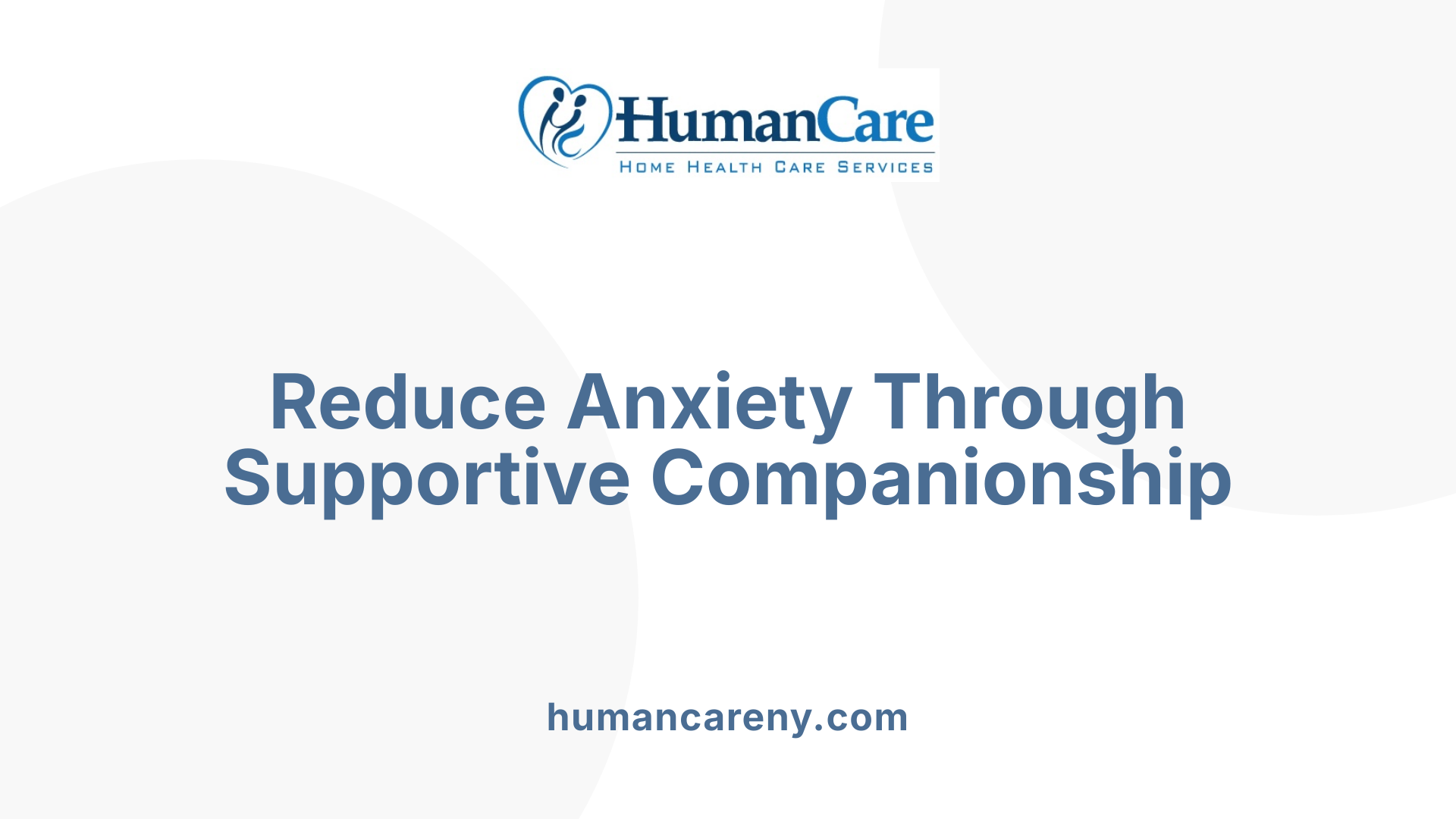
What are the benefits of companion care in managing senior anxiety?
Companion care offers numerous advantages for older adults dealing with anxiety. Regular social interaction and emotional support from caregivers can greatly help reduce feelings of loneliness and perceived burdensomeness, common sources of anxiety among seniors.
Programs like The Senior Connection have demonstrated that peer companionship significantly decreases symptoms of anxiety and depression in elderly patients. These interactions create a sense of belonging and purpose, which are essential for emotional resilience.
Engaging seniors in shared activities such as walking, reminiscing, or participating in hobbies not only promotes mental well-being but also provides physical benefits. Simple gestures like physical touch or meaningful conversations can ease anxiety symptoms.
In addition, companion care helps seniors stay connected through technology, social outings, and community involvement. This social engagement enhances mood and fosters a sense of community and support.
Overall, consistent companionship contributes to better mental health outcomes by reducing feelings of fear, isolation, and worry, ultimately improving quality of life for older adults battling anxiety.
Strategies for Caregivers to Reduce Anxiety
How do companion caregivers help seniors manage anxiety?
Caregivers employ a range of techniques to support seniors experiencing anxiety. Consistent social interaction provides reassurance and creates a sense of safety, making seniors feel connected and supported.
Engaging older adults in meaningful activities is crucial. Caregivers encourage participation in hobbies like gardening, painting, or reading, which can give seniors a sense of purpose and distract from anxious thoughts.
Routine and relaxation are also vital components. Caregivers introduce calming activities such as listening to soothing music, practicing mindfulness, or using relaxation techniques like deep breathing exercises. Establishing a predictable daily schedule helps reduce uncertainty and stress.
Monitoring each senior’s unique needs allows caregivers to personalize care plans. This involves observing stress triggers, adjusting activities accordingly, and encouraging independence where possible. Giving seniors a voice in their care fosters confidence and diminishes feelings of helplessness.
Facilitating social connections through outings or technology—like video calls with loved ones—can greatly lessen loneliness, a significant contributor to anxiety in seniors.
In essence, caregivers who blend emotional support, structured routines, personalized activities, and social engagement create a supportive environment that helps reduce anxiety and improve overall emotional health.
| Strategy | Description | Additional Details |
|---|---|---|
| Engagement in Activities | Promoting hobbies and social interactions | Includes gardening, reading, walks, and games |
| Relaxation and Routines | Using calming techniques and structured daily schedules | Includes music therapy, meditation, and consistent daily habits |
| Personalization of Care | Tailoring activities and support to individual needs | Based on mood, interests, and health status |
Understanding and implementing these approaches enables caregivers to create a comforting environment, significantly reducing anxiety in older adults.
Supporting Seniors with Anxiety Disorders through Compassionate Care
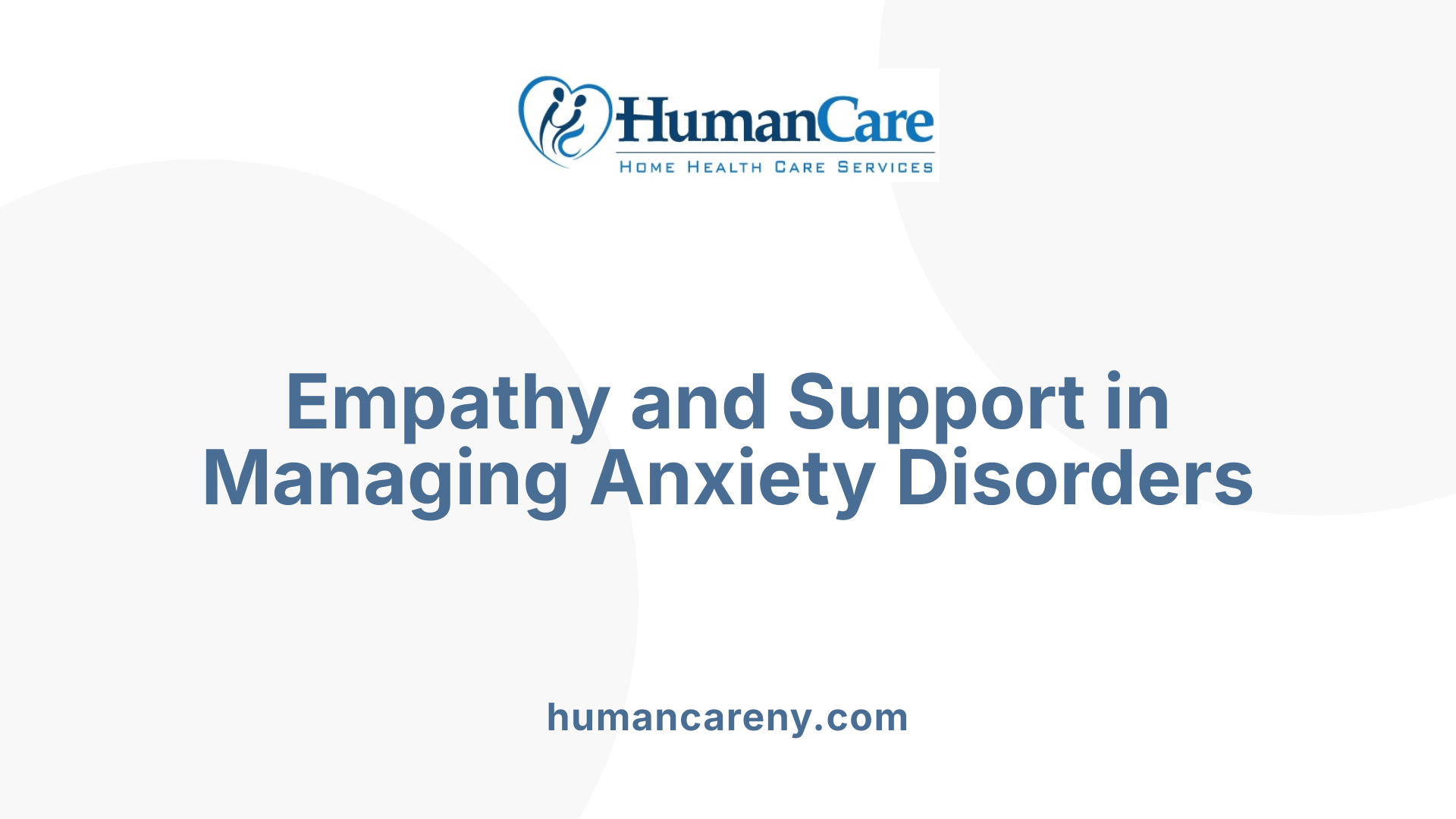
How does companion care support elderly individuals with anxiety disorders?
Companion care plays a crucial role in helping seniors manage anxiety disorders by providing consistent social interaction. Regular visits from caregivers help reduce feelings of loneliness and social isolation, which can worsen anxiety symptoms. Emotional support is a cornerstone of compassionate care; caregivers provide reassurance, listen actively, and create a safe space where seniors feel heard and understood.
Engaging seniors in uplifting conversations, gentle physical activities like walking, or relaxation practices such as deep breathing exercises can significantly boost their mood and mental health. These activities stimulate positive emotions and help distract from anxious thoughts. Moreover, participation in meaningful activities—such as reminiscing or light hobbies—instills a sense of purpose and accomplishment.
Creating a reassuring environment also involves establishing routines, which provide predictability and a sense of security. Caregivers foster a calming atmosphere by maintaining a gentle demeanor, listening attentively, and being attentive to each senior’s individual needs. This environment encourages seniors to express their concerns, thereby alleviating fears and building resilience.
Overall, companion care nurtures emotional stability, reduces feelings of fear and helplessness, and strengthens mental well-being, making it a vital component in supporting seniors with anxiety disorders.
The Impact of In-Home Support and Activities
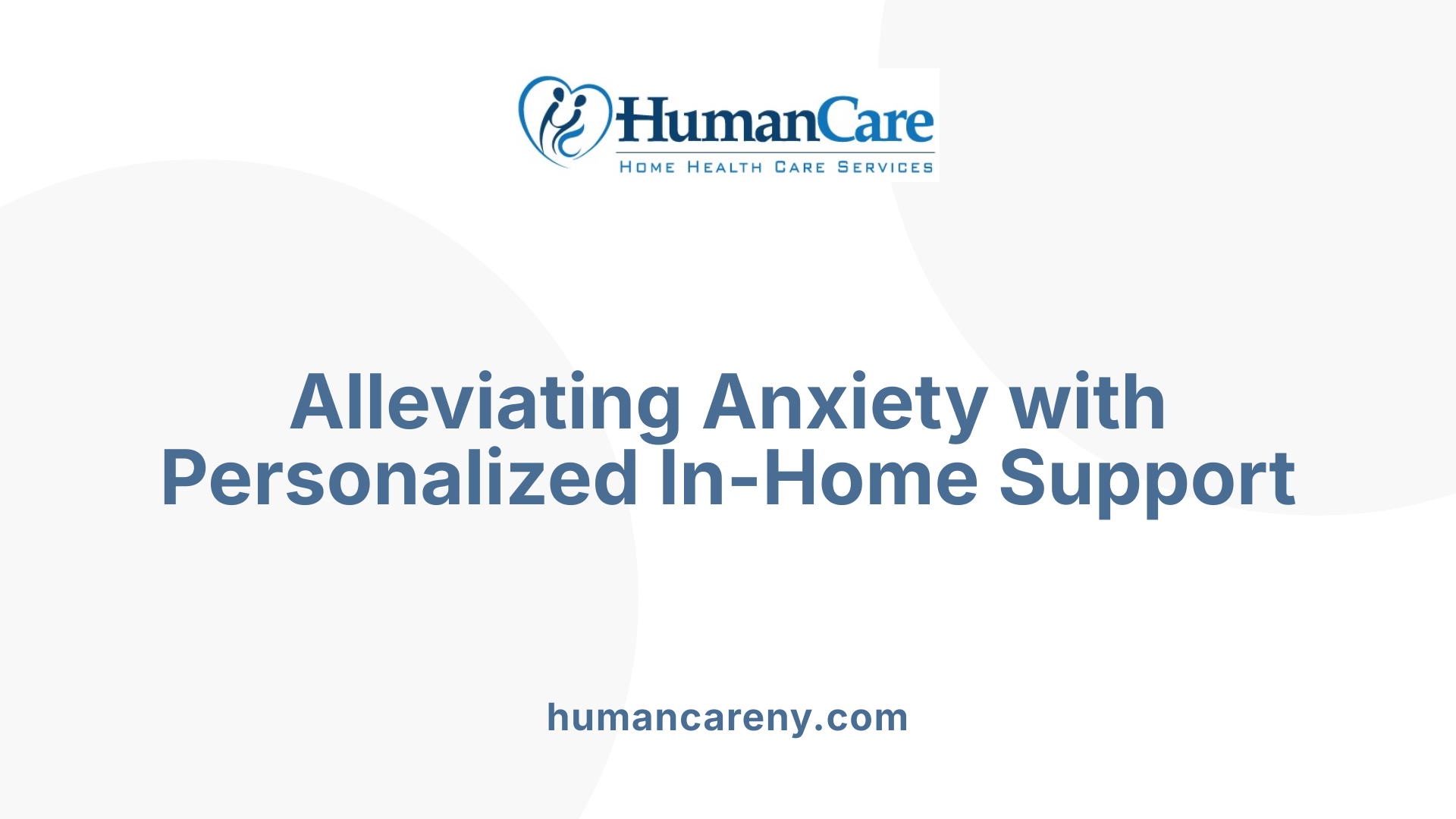
How can companionship and in-home support help alleviate anxiety symptoms among the elderly?
Companionship and in-home support play a crucial role in easing anxiety among older adults. Regular visits from caregivers provide consistent social interaction, which helps combat loneliness and feelings of social isolation—common triggers for anxiety.
Engaging seniors in conversations, hobbies, and community activities fosters a sense of purpose and belonging. This connection boosts emotional well-being and helps stabilize mood, reducing symptoms of depression and anxiety.
Caregivers can also encourage physical activities like walking or participating in group events, which improve both physical and mental health. Additionally, mental exercises such as reminiscing or reading aloud can stimulate cognitive function and promote relaxation.
Supporting seniors with technology, like facilitating video calls with loved ones or using social media, expands their social networks and keeps them connected.
Overall, personalized in-home companionship provides emotional reassurance, promotes physical activity, and nurtures mental health, making it an essential part of managing anxiety symptoms in elderly individuals.
Practical Tips for Caregivers Supporting Seniors with Anxiety
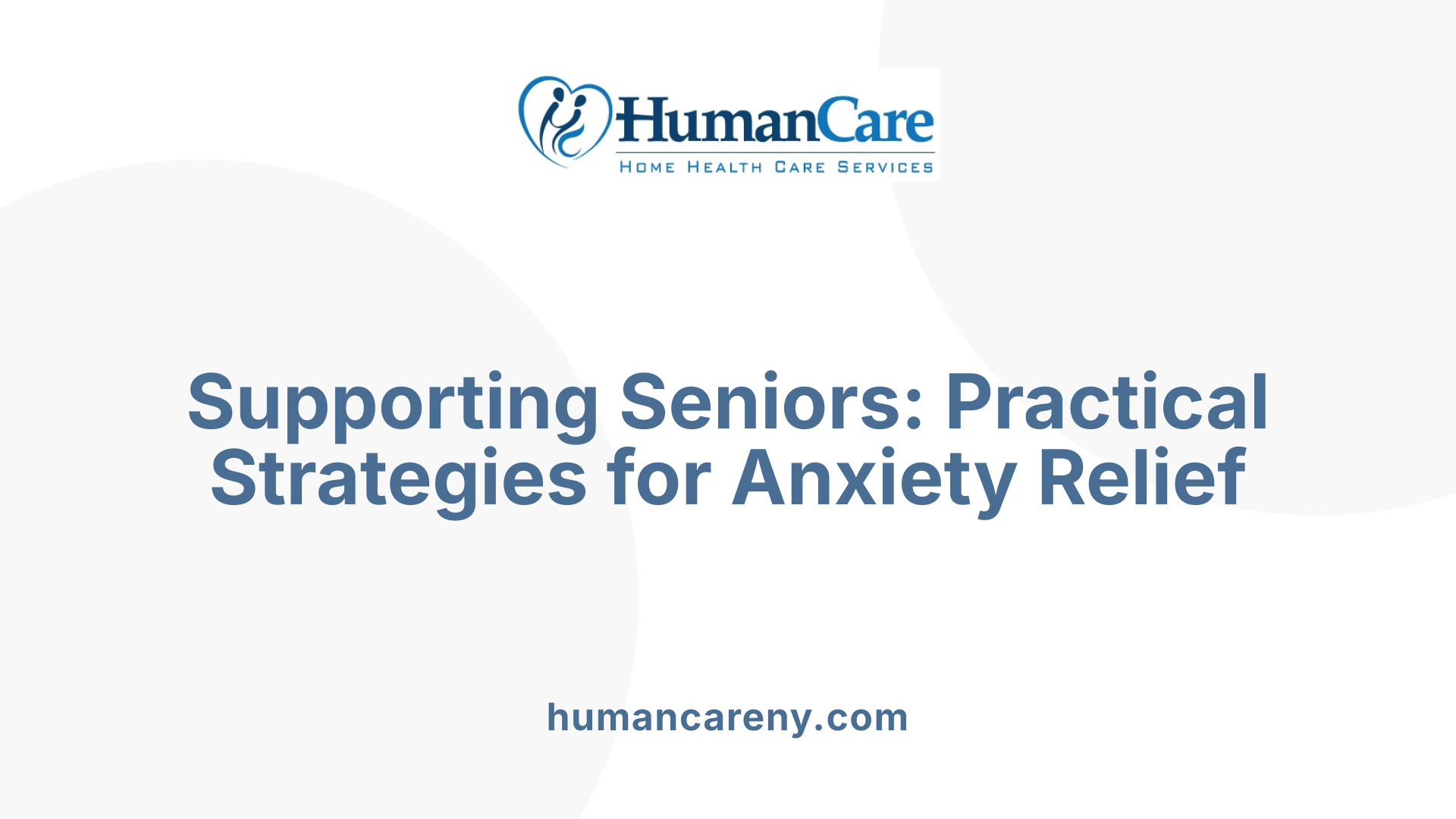
What are some caregiving tips for helping elderly individuals with anxiety disorders through companion support?
Supporting seniors with anxiety involves creating a calm, reassuring environment that fosters trust and comfort. Caregivers should maintain a soothing tone, remain patient, and listen actively to the concerns expressed by the elderly. From supporting daily routines to engaging in enjoyable activities, their role is vital in reducing feelings of fear and loneliness.
One of the most effective strategies is encouraging social activities and hobbies. Gentle walks, reading, reminiscing, or participating in community events can serve as positive distractions and help build confidence.
Caregivers should be attentive to physical symptoms like rapid heartbeat, dizziness, or muscle tension, which may signal heightened anxiety. When these symptoms arise, they should suggest or facilitate consultation with healthcare professionals for appropriate treatment.
Promoting relaxation techniques such as deep breathing, meditation, or listening to calming music can help seniors manage acute anxiety episodes.
Maintaining a consistent daily routine balances structure and predictability, which can significantly reduce anxiety.
Finally, caregivers should support medication adherence and encourage open communication about emotional health, ensuring seniors feel heard and supported. Providing this steady, compassionate presence enhances their overall well-being and helps manage anxiety more effectively.
Enhancing Mental Well-Being Through Compassionate Support
Incorporating companion care into elderly mental health strategies offers significant benefits by fostering social interaction, emotional reassurance, and engaging activities that mitigate anxiety symptoms. Regular companionship not only alleviates feelings of loneliness and social isolation but also encourages physical activity, cognitive engagement, and confidence in daily routines. Professional caregivers trained to understand anxiety disorders can implement personalized strategies that promote relaxation, foster resilience, and encourage independence. Ultimately, compassionate in-home support creates a nurturing environment that enhances mental and emotional well-being, supporting seniors in leading healthier, more connected lives. As communities and families increasingly recognize the importance of mental health in aging, companion care stands out as a vital and accessible component of holistic elderly care.
References
- Peer Companionship for Mental Health of Older Adults in Primary Care
- Understanding Anxiety in the Elderly | OurParents
- Caregiving Tips for Managing Anxiety Disorders - Alegre Home Care
- How to Help Reduce Anxiety for Senior Loved Ones
- Elderly Anxiety Disorders: Comprehensive In-Home Care Solutions
- The Anti-Anxiety Hour: How Regular Visits Calm The Mind And Heart -
- The Role of Companion Care in Reducing Depression Among Seniors
- Anxiety Care, Caregiver - FCP Live-In
- Companion Care at Home: Supporting Senior Mental Health
- How Companion Care Improves Emotional Well-Being in Seniors

